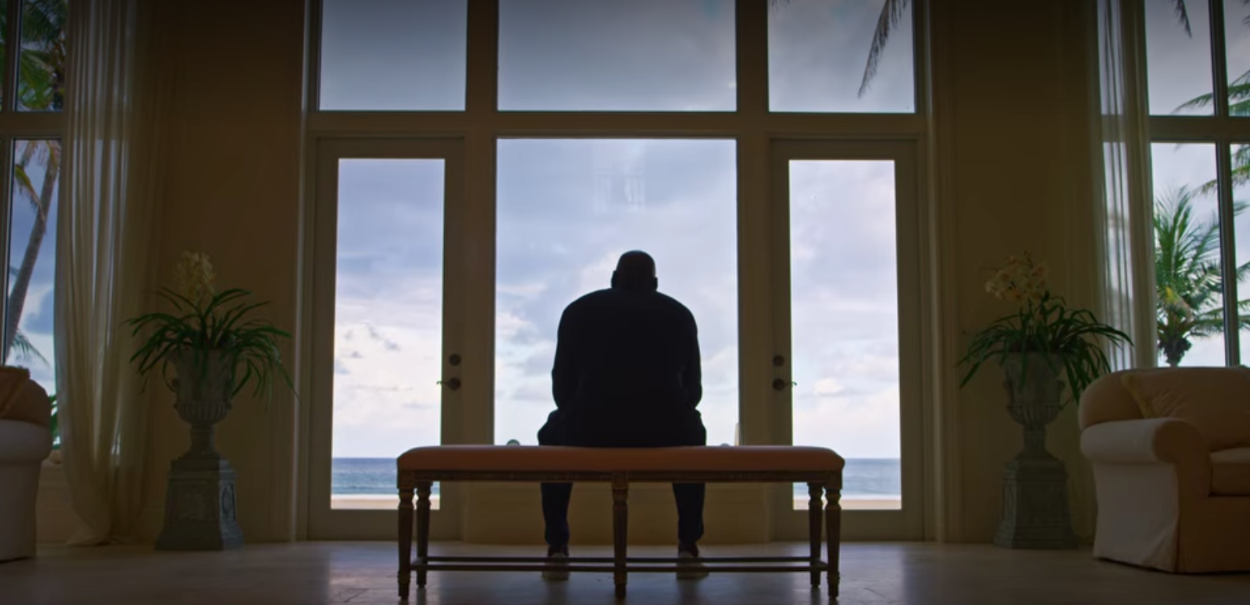Sports is never just about sports.
Sports is about identity.
When Joseph Schooling won the gold medal in the 2016 Olympics, Singaporeans weren’t fascinated by him because they developed a sudden interest in mastering the butterfly stroke. No, we put his life under a microscope because of what Schooling’s win said about Singapore, and by extension, what Singapore’s win said about Singaporeans.
What inspirational athletes provide are mirrors through which we can get a better look at ourselves.
As the saying goes: there’s no ‘I’ in team, but there’s definitely a ‘me.’
Michael Jordan and The Last Dance Offers Something For Everyone
By the same token, Michael Jordan is a figure that means different things to different people—depending on who you ask.
For Singaporeans over the age of 35, Jordan is the GOAT. Black Jesus. Star of Space Jam, puncher of Steve Kerr’s face, and pusher of Byron Russell. For most of the nineties, His Airness was the most famous and recognisable celebrity on the planet.
For Zoomers and younger Millennials, on the other hand, they only know him as the crying Jordan meme and the world’s most successful sneaker salesman. It doesn’t matter whether his name is Michael Jordan or Michael Jackson. All they know is that the Jordan 1s are the most iconic sneakers in history.
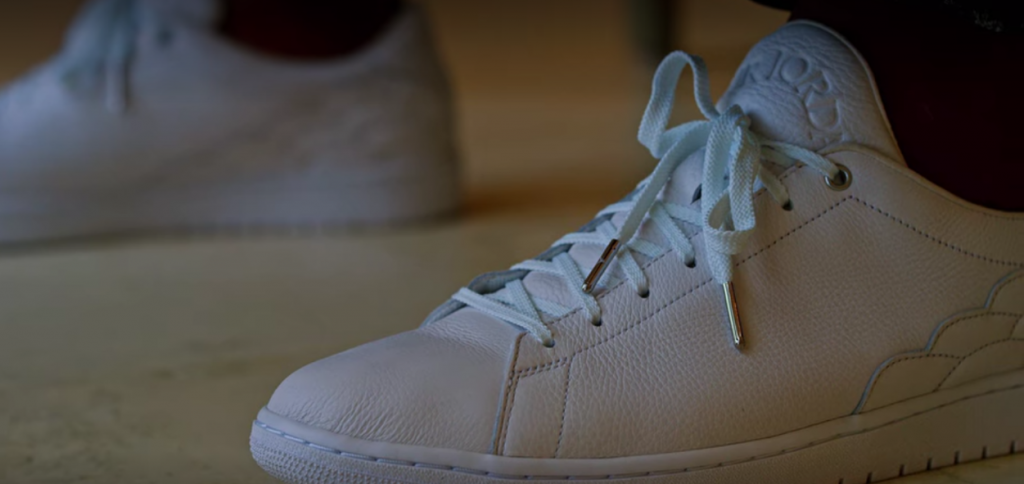
Perhaps owing to Jordan’s universal appeal, The Last Dance, a 10-part Netflix-ESPN joint miniseries on the 1997-1998 Chicago Bulls, somehow succeeds at offering something for everyone—yes, even non-sports fans.
The Last Dance is really three shows in one. It’s a reality show with off-court drama and flamboyant personalities, a basketball purist’s wet dream, and finally, a rumination on the meaning of work and legacy.
Once Upon a Time in Chicago
The story begins in the 1997 preseason. Michael Jordan and the Chicago Bulls are on top of the world. They’ve just come off five championships in the past seven years, and now, they’re going for the sixth.
But appearances can be deceiving. Internally, the team is on the verge of collapse. Resentments and jealousies have been built up over the years, and this is the season where the spotlight and fatigue threatens to tear the team apart.
The Last Dance is set in Chicago only so much as ‘Chicago’, like Hogwarts or Narnia, is an allegorical place we can all relate to.
The show documents the city’s meteoric rise from a swampland of drugs and lawlessness to international respectability. But complacency is setting in. The foundation laid by a golden generation (of players) is now at risk. Can the city’s prosperity last? Under new leadership, will there be more accolades in its future, or will this be a slow and steady decline back into irrelevance?
Through unprecedented access and previously un-aired footage, The Last Dance explores how Jordan’s Bulls arrived at this juncture, and whether, despite the odds, they still have one last championship run left in them.
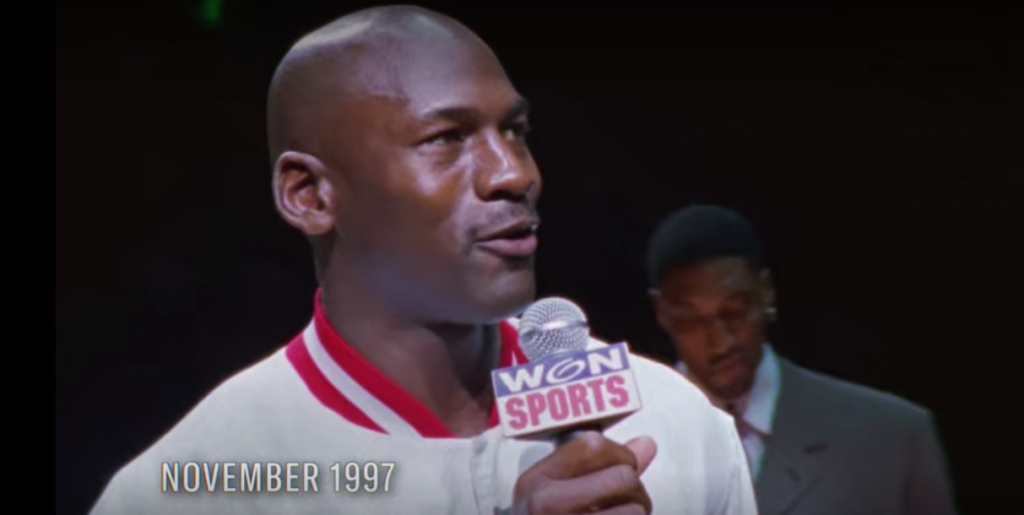
The Last Dance is a Reality Show With A #Relatable Cast of Characters
The Last Dance is a show that arguably fulfills the broken promises of Tiger King and Too Hot To Handle. It doesn’t have to try to be ‘zany’ or ‘insane,’ because the story and characters are compelling enough to stand on their own.
Each of the four aired episodes focuses on introducing one main character on the 1997-1998 Chicago Bulls team.
We have all the archetypes of a classic reality show:
1. The Hero: Michael Jordan is your standard jock on a hero’s quest for greatness
2. The Underdog: Scottie Pippen plays the naive country boy who gets schooled in life’s harsh realities
3. The Rebel: Dennis Rodman is the misunderstood rebel with a troubled past.
4. The Villain: Bulls General Manager Jerry Krause, the jealous villain in a business suit.
Perhaps the most #relatable character in the show is Scottie Pippen, whose name and backstory wouldn’t look out of place in a Dickens novel.
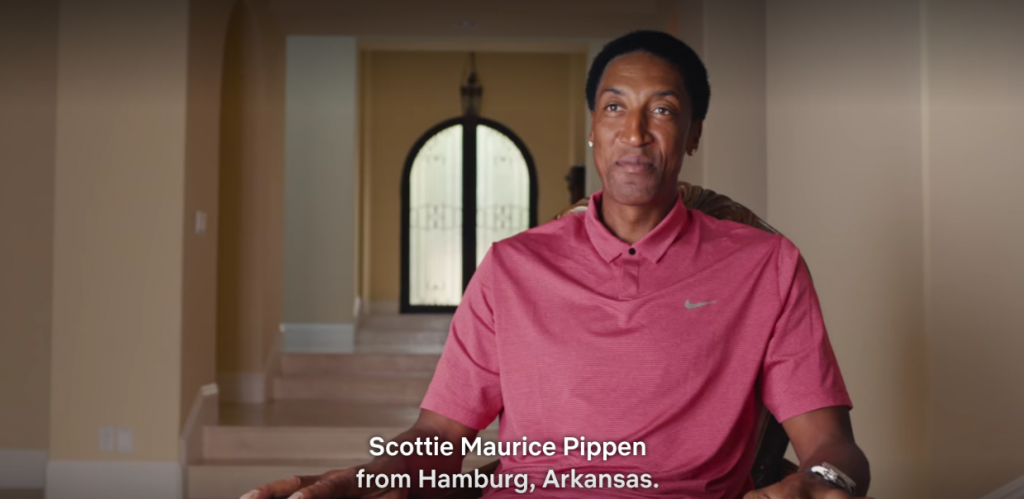
Pippen grew up in an impoverished household as the youngest of 12 siblings. One day, his father, the family’s sole breadwinner, collapses with a stroke at the dinner table, putting him in a wheelchair for the rest of his life. Basketball becomes young Pippen’s only escape. He enters college as an equipment manager for the University of Central Arkansas, where he has to beg the coach to give him a basketball scholarship.
The rest is, shall we say, history.
But even after he ‘makes it’ to the NBA, Pippen’s disadvantaged past continues to plague him.
He signs a seven year contract worth $18M (or $2.5 million a year). This almost immediately makes him one of the most underpaid stars in the league (as a comparison: Jordan earned over $30M per season). But for someone from Pippen’s background, he simply couldn’t afford to bet on himself and risk not being able to provide for his family.
But as the Bull’s success grows and the championships mount, Pippen’s anger starts to boil over, leading to awkward confrontations with Bulls General Manager Jerry Krause, who refuses to renegotiate his contract and even attempts to trade him.
Then we have the flamboyant Dennis Rodman. Lover of prime Madonna and Carmen Electra from Baywatch. Celebrity Apprentice Rodman who gets fired by reality star Donald Trump over a spelling mistake. Most recently, Rodman is best known as Kim Jong Un’s favorite player (cue coffin dance?). And allegedly, the second runner-up for the Nobel Peace Prize.
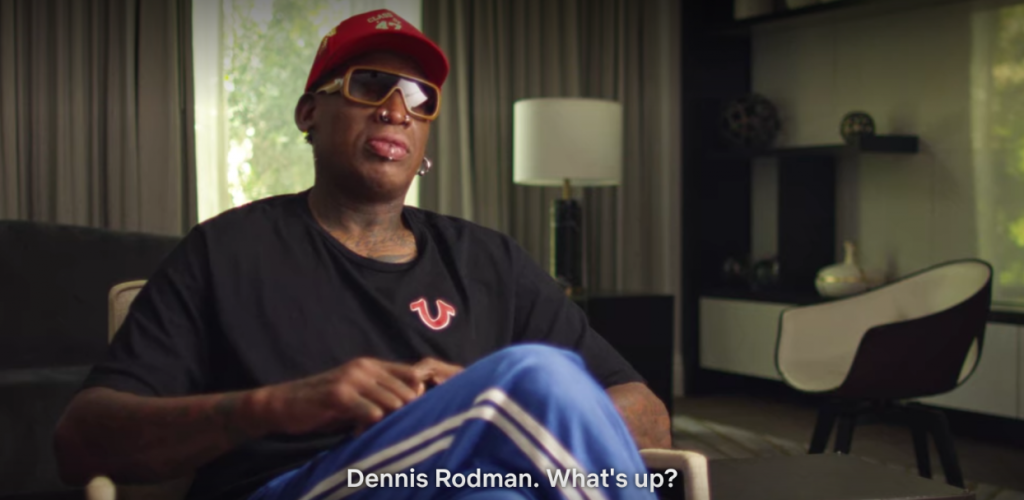
The footage of Rodman ditching his teammates mid-season to go on a 48 hour ‘vacation’ in Las Vegas is simply must-watch TV. And yet, behind Rodman’s antics is a misunderstood and troubled spirit, someone who both thrived and rebelled against the constant media scrutiny.
Even for its villains, The Last Dance offers a relatable narrative arc.
Jerry Krause, the Bulls General Manager, bears an unfortunate resemblance to Mr. Swackhammer, the main antagonist in Space Jam and the proprietor of the intergalactic theme park ‘Moron Mountain.”
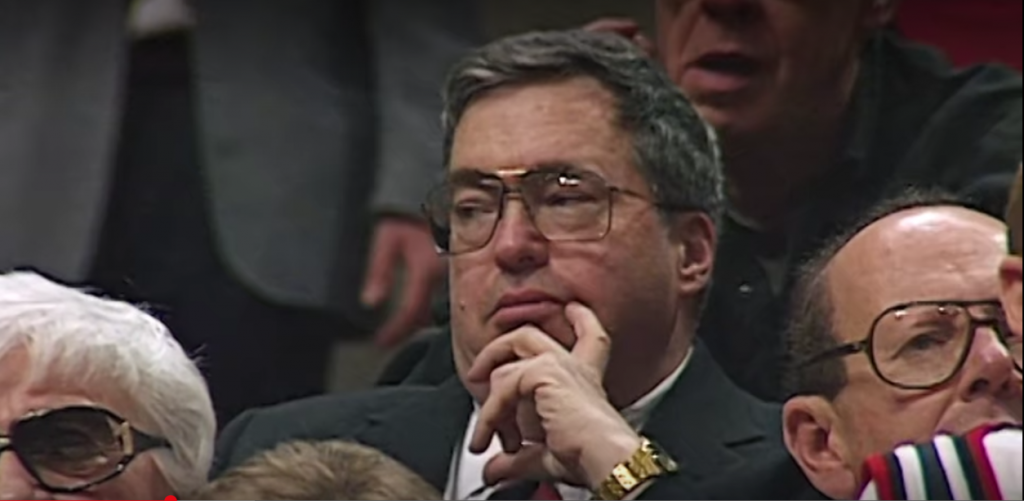
But here’s the irony: Krause wasn’t a moron—just petty as hell. He was the one who had the foresight to draft Pippen and trade for Rodman. He plucked legendary coach Phil Jackson from obscurity in Puerto Rico to coach the team. And yet, when the whole world began singing the praises of the players and their genius coach, Krause’s resentment grew.
Before the 1997-1998 season even began, he declared that this would be Phil Jackson’s final season as the coach of the Chicago Bulls. After that, he would be the one in charge of ‘rebuilding’ the team.
The Last Dance is Basketball Nirvana
Despite the shenanigans, The Last Dance offers incredible, never-seen-before footage that would satisfy any basketball junkie or retro 90s enthusiast. I run the risk of boring casual readers with detailed descriptions of all the gems, so here’s a short list:
Dennis Rodman on rebounding. Footage of Phil Jackson coaching in Puerto Rico. The Bad Boy Detroit Pistons and the hard-nosed ruthlessness of the Jordan Rules. Grown-ass millionaires still being salty decades later about not shaking hands after a game.
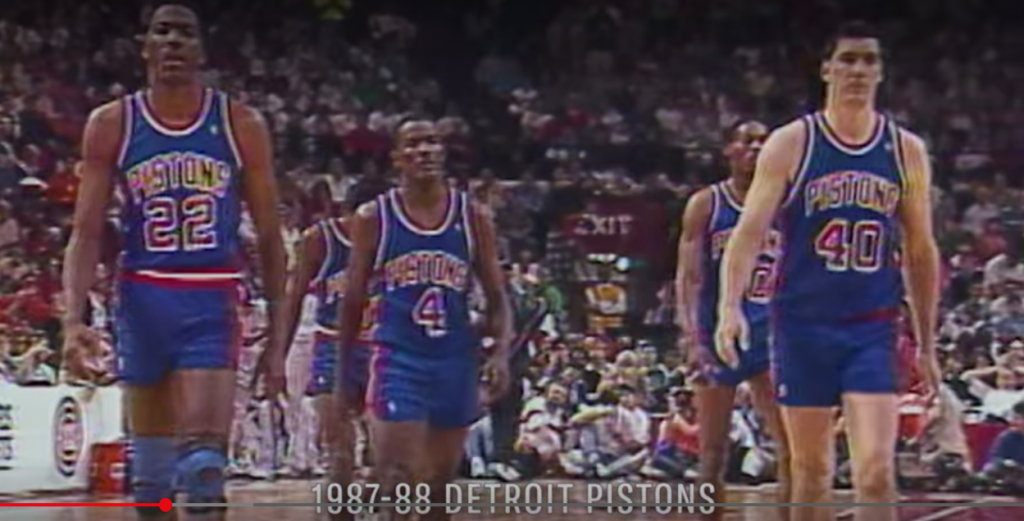
But perhaps the defining story of Michael Jordan happened during his second season in the league, when he broke his foot, and tried to return to the court against his doctor’s orders.
When doctors warned of a 10% chance of a career-ending reinjury, Bulls owner Jerry Reinsdorf stepped in and posed Jordan a question: suppose you had a headache, and I gave you a bottle of pills. But one out of every ten pills would kill you. Would you still take the pills?
Jordan’s reply?
“Depends on how bad the fucking headache is.”
This drives at the heart of Jordan’s competitive ethos. You never weigh the odds. You always play to win. And with that mindset comes an inherent distrust of people who, hiding behind spreadsheets and calculators, have neither the courage nor the dedication to excel at their craft.
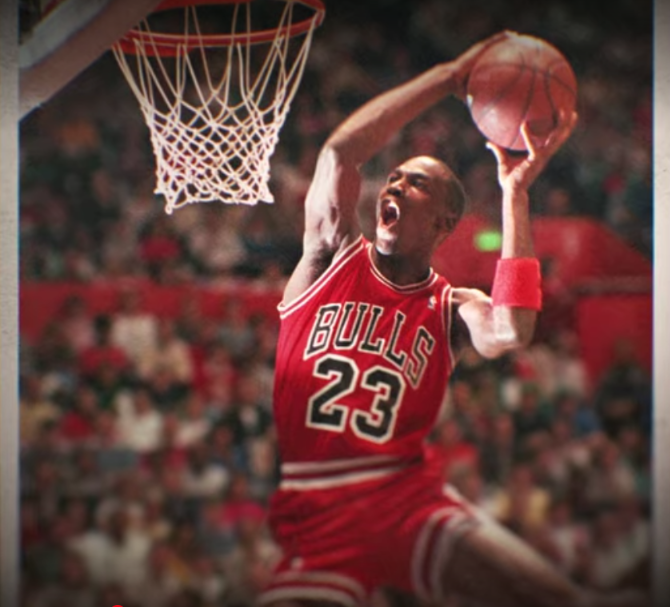
The Last Dance Is A Rumination on Money, Fame, and the Meaning of Work
“It’s not just basketball that we have to deal with on this team. It’s the pressure of the bullshit,” says Dennis Rodman.
“I’ll play the game for free, but you get paid for the bullshit after you leave the floor.”
Similarly, some Singaporeans are under the mistaken assumption that they’re being paid to do the work. When what they’re actually being compensated for is all the other stuff they have to put up with: Clients. Co-workers. Meetings. Politics.
But if multi-millionaires on the most famous team in history still felt underpaid, underappreciated, and consumed by politics and petty squabbles, then should we, as commoners, be taking a hard look at whether money and fame is really the answer to our problems?
Down the road, as we look back on our work and legacy, what did we really do it for? What was the point? Was it worth it, after all?
It’s almost poetic that the best piece of life wisdom was offered by the ‘crazy’ Dennis Rodman:
“Basketball is simple. It’s a simple game. But when you leave this confined zone, it’s hard. It’s hard.”
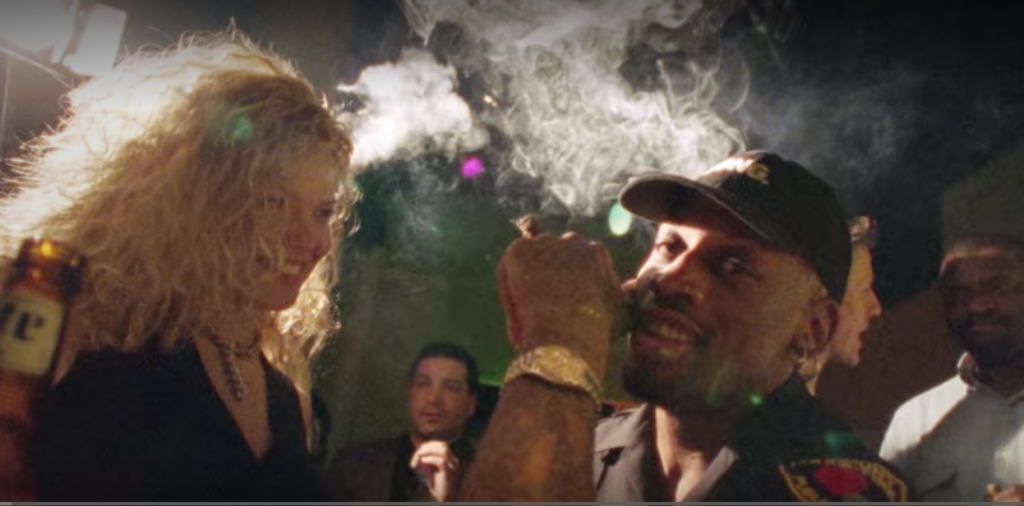
Was It Worth It, After All?
At the time of this writing, only four episodes have aired on Netflix, with new episodes released every Monday. You can’t binge-watch The Last Dance so much as luxuriate in it. It’s something to watch to pass the time, and a testament to time’s passage. It’s both a throwback and allegory of where we see ourselves at the end of our own journeys.
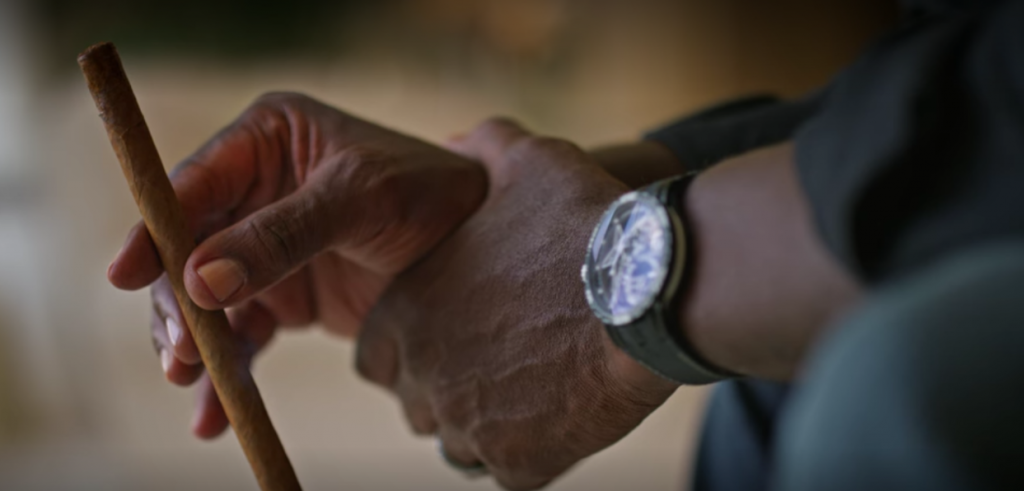
“Enjoy this while it lasts,” says Phil Jackson in the team meeting of that final season, which he dubbed ‘The Last Dance’. “Because this is it.”
Don’t do it for the money. Don’t do it for the fame.
Just do it for the love of the game.
How do you feel about Michael Jordan and ‘The Last Dance’? Tell us at community@ricemedia.co.

